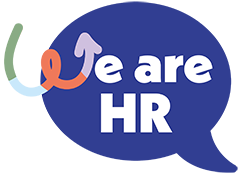Table Of Contents
- Understanding the New Neonatal Care Leave Regulations in the UK (2025)
- Introduction
- What is Neonatal Care Leave?
- Key Features of the New Regulations
- Who is Eligible?
- Neonatal Care Pay Details
- Length of Leave and Notice Requirements
- Protections for Employees
- How Employers Should Prepare
- Ensuring Compliance & Supporting Employees
- Upskill as an HR Professional with CIPD & CMI Courses
Introduction
Starting from April 2025, the UK government is introducing Neonatal Care Leave and Pay, a significant step forward in supporting parents of newborns requiring neonatal care. The Neonatal Care (Leave and Pay) Act 2023 lays the foundation for this entitlement, ensuring working parents can focus on their families without the fear of financial strain or job insecurity. Draft regulations outlining the specifics of the leave and pay structure are pending parliamentary approval but are expected to come into effect on 6 April 2025.
For HR professionals, understanding and implementing these regulations is essential to maintaining a compliant and supportive workplace. Let’s explore what this means for both employers and employees.
What is Neonatal Care Leave?
Neonatal Care Leave is a new statutory leave entitlement that allows parents to take additional time off if their baby requires neonatal care. Under the draft regulations, neonatal care is defined as:
- Medical care received in a hospital.
- Medical care provided elsewhere after discharge, under a consultant’s direction, including continuous monitoring and hospital-arranged visits by healthcare professionals.
- Palliative or end-of-life care.
Key Features of the New Regulations
Here are the core aspects of the Neonatal Care Leave regulations:
- Eligibility: Parents of babies born on or after 6 April 2025 who receive neonatal care within 28 days of birth for at least seven continuous days.
- Leave Duration: Up to 12 weeks of paid leave, in addition to existing parental leave entitlements.
- Flexibility: Parents can take leave within 68 weeks of the child’s birth.
- Neonatal Care Pay: Employees meeting the service and earnings requirements will be entitled to statutory pay.
- Employment Protection: Employees are protected from dismissal or detriment due to taking Neonatal Care Leave.
Who is Eligible?
Neonatal Care Leave is available from day one of employment without a minimum qualifying service requirement. Eligible employees include:
- The child’s biological parent or intended parent (for surrogacy arrangements).
- The partner of the child’s mother at birth.
- The child’s adopter, prospective adopter, or their partner.
- An overseas adopter or their partner when the child enters Great Britain.
To qualify, the employee must have or expect to have responsibility for the child’s upbringing and can only use Neonatal Care Leave to care for the child.
Neonatal Care Pay Details
Employees with at least 26 weeks of continuous service and average earnings of at least £123 per week will qualify for Statutory Neonatal Care Pay, set at £187.18 per week or 90% of their average weekly earnings, whichever is lower.
Employers can reclaim a percentage of the statutory payments, and further guidance is expected before the implementation date.
Employees who do not meet the service and earnings requirements will still be eligible for Neonatal Care Leave, but without statutory pay.
Length of Leave and Notice Requirements
Eligible employees can take one week of leave for each week the child receives uninterrupted neonatal care, up to a maximum of 12 weeks. This leave can be taken in two different ways:
- Tier 1 Period: Leave taken while the baby is still receiving neonatal care or within seven days after care ends. This leave can be taken in non-continuous blocks of at least one week. Notice should be given before the start of each leave week, or as soon as reasonably practicable, without a written requirement.
- Tier 2 Period: Leave taken beyond seven days after neonatal care ends, which must be taken in one continuous block. Employees must provide 15 days’ written notice for one week of leave or 28 days’ notice for two or more consecutive weeks.
Protections for Employees
Employees taking Neonatal Care Leave will retain their contractual rights, except for wages or salary, and will have the right to return to the same or an equivalent role. Additional protections include:
- Protection from dismissal or detriment due to taking Neonatal Care Leave.
- Protection from redundancy during the leave period.
- Employees who take at least six consecutive weeks of Neonatal Care Leave may be entitled to redundancy protection for up to 18 months from their child’s birth.
How Employers Should Prepare
Employers should proactively update their policies and payroll systems to reflect these changes. Recommended actions include:
- Updating HR Policies: Employee handbooks and contracts should include Neonatal Care Leave entitlements.
- Training Managers & HR Teams: Ensure all relevant personnel understand the new leave provisions.
- Planning Payroll Adjustments: Employers should prepare for Neonatal Care Pay calculations and reimbursement mechanisms.
- Enhancing Employee Benefits: Employers may consider offering enhanced pay above the statutory minimum to align with other parental leave policies.
Ensuring Compliance & Supporting Employees
Employers should stay informed as the draft regulations are finalised in Parliament. The UK government is expected to release official guidance ahead of the April 2025 implementation date. Creating a supportive work culture that accommodates neonatal care needs can boost employee satisfaction and retention.
Upskill as an HR Professional with CIPD & CMI Courses
With new employment laws emerging, staying updated is crucial for HR professionals. Our CIPD and CMI courses can help you develop the necessary skills to navigate legislative changes, enhance workplace policies, and support employee wellbeing effectively.
Whether you’re an HR manager, business leader, or aspiring professional, investing in HR training will ensure you stay ahead in a constantly evolving workplace. Explore our courses today and take the next step in your HR career!


